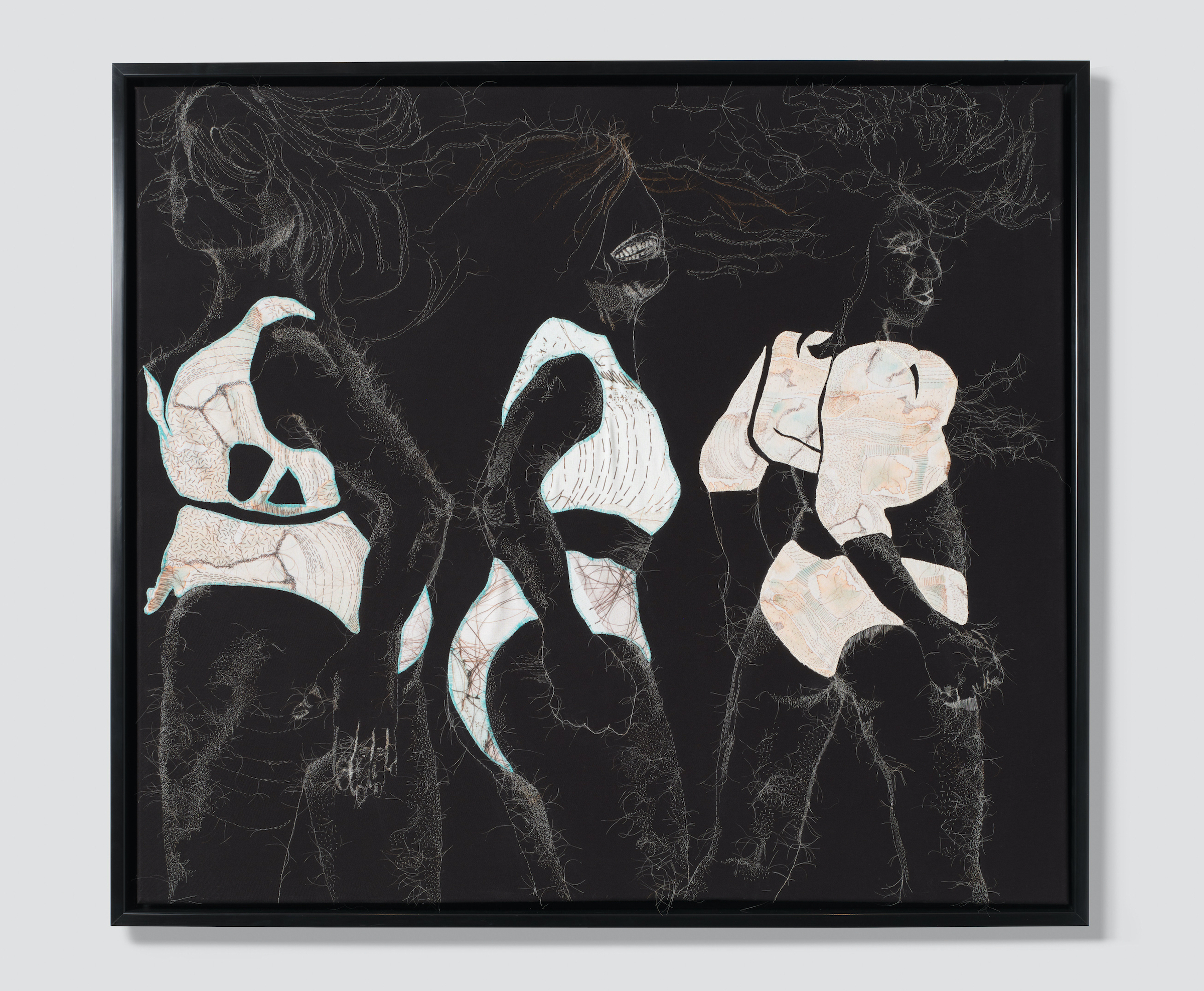SANTA FE — In 2022, artist Rosemary Meza-DesPlas was crowned “Miss Nalgas USA 2022,” a pageant of her own invention for women over 50. That same year, Meza-DesPlas received a Latinx Artist Fellowship from the Ford and Mellon foundations, a real-world accolade, one that celebrates the diversity of work by Latinx art and artists, such as the aforementioned performance.
Nalgas, a Spanish word that translates to “buttocks” in English, makes appearances in My Hair Story: From Brunette to Gray, the artist’s retrospective exhibition at form & concept, as do other body parts. Naked and isolated, the body parts suggest vulnerability or “risky exposure,” Meza-DesPlas writes in her statement. Hair plays a central role in her practice, as well, as the exhibition title implies. For more than 20 years, she has been collecting her hair daily, using it as a drawing material in her portraits and figure studies, which examine the myriad roles women perform — or are expected to in our society.
Although Meza-DesPlas replicates classic drawing techniques such as hatching, stippling, and shading by hand-stitching hair on paper or fabric, hair is hair, not thread, ink, or graphite. Drawing on and with this unique material in the 30-plus works on view, she addresses cultural stereotypes and sociopolitical issues including feminism, personal agency, ethnicity, violence, and aging.
For example, in “Marching Across Your Lawn, the Grass Is on Fire” (2020), the artist refers to women’s use of marching as a political force. Drawing with silver hair on black fabric, she renders the fuzzy pubic areas, skin creases, and fleshy dimples of three women by drawing five legs mid-motion: two pairs in the center, depicted from the waist down, and a singular appendage, from the knee down, just entering the frame. One woman’s back leg and another’s front leg join to share a foot — the individual becoming part of a combined effort or movement.
In “Graces, Nalgonas, Marias” (2023), the final work in the Miss Nalgas USA 2022 series, Meza-DesPlas again applies silver hair to black fabric to “highlight socio-cultural notions that burden aging women.” (In addition to the performance, the series features an installation and videos.) Another group of three figures, whose nalgas are posed front and center, reference stereotypical, conflicting concepts of beauty for Latina Americans, inspired by Jennifer Lopez and Shakira, who were 50 and 43, respectively, when they performed in the Super Bowl LIV halftime show. The photo-negative effect of light lines on a dark background give the central woman’s toothy grin an almost sinister look.
Scholar Karen Mary Davalos connects Meza-DesPlas’s work with nepantla, the Nahuatl (Aztec) word for “in-betweenness.” Davalos writes in the exhibition catalog, “With nepantla aesthetics juxtaposed meanings are anticipated, rather than disregarded or used to belittle the art.” Within this context, and considering the artist’s effective use of humor (it’s important to note that many of Meza-DesPlas’s works are laugh-out-loud funny even if painfully truthful), My Hair Story: From Brunette to Gray frames hair as a material with a purpose, when used as an artistic fiber; an indicator of identity, when scrutinized socially or scientifically; a cultural signifier of beauty, when on a woman’s head; and an element of disgust or shame, when disembodied or otherwise out of place, physically, socially, or culturally. The artist not only uses hair to puncture the surfaces of her drawings but also allows the end of the fibers to stick out, as though still growing, often surrounded with ample compositional negative space. Her images are simultaneously completed and unfinished, the subject matter defined yet unloosed.




My Hair Story: From Brunette to Gray continues at form & concept (435 South Guadalupe Street, Santa Fe, New Mexico) through September 14. The exhibition was organized by the gallery.

